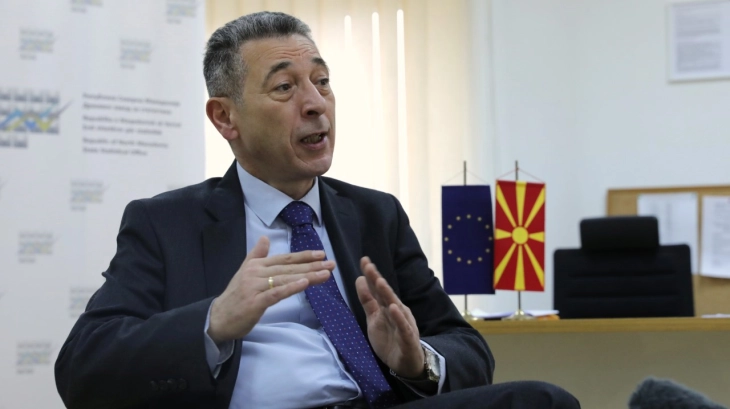Apostol Simovski, Director of the State Statistical Office, stated that part of the Albanian population identifying as Bulgarians during the census, due to significant Bulgarian efforts, does not reflect a failure on Albania’s part. He noted that the census could potentially be repeated.
“Globally, in countries where ethnic identity data is collected, this information must reflect the free will of the person providing it,” Simovski emphasized.
Simovski affirmed that, based on his full awareness of the census preparations in Albania, any influence was minimal and addressed in isolated cases. He highlighted that this situation represents the actual self-declaration of individuals and stressed that the Albanian Institute of Statistics cannot be blamed for this outcome.
In an interview with RFE/RL, Simovski mentioned regular contact with Albanian colleagues, who also did not anticipate this result.
“Although I had some expectations, the problem was different. Before the census, Bulgaria engaged in intense activities to agitate, buy, and offer citizenship opportunities. Many people, driven by economic reasons and the desire for a passport, accepted this. However, we cannot blame Albania for this. Maybe we can fault them for allowing such pressure, but that is a political issue beyond my purview,” Simovski said.
Regarding calls to repeat the census, Simovski noted that it is possible but costly, and the decision lies with the Albanian government, citing the 1991 repeat census as an example.
“Census operations are very expensive. However, I am confident that no one influenced the data according to the rules, methodologies, and standards. It is a personal declaration. You cannot force someone to declare something, and you cannot deny the existence of Bulgarians who declared themselves as such,” Simovski added.
He acknowledged that some people testified to declaring themselves as Bulgarians without genuinely feeling that way.
“This happens due to intense propaganda, primarily for economic or lucrative reasons. It is a personal issue. What bothers me is that those acting against national feelings now appear as the greatest defenders of national identity,” Simovski remarked.
On the abolition of the ‘balancer,’ Simovski described it as a political tool and expressed reluctance to make political statements, preferring to stick to expertise. He criticized the misuse of census data, emphasizing that relevant population structure data pertains to the resident population, with about 450,000 people remaining uncovered.
Simovski expressed doubt about the reported number of people leaving the country, suggesting the actual number is higher. He highlighted that emigration is a key demographic problem, with the state lacking accurate data and strategy for 30 years.
“We strive to estimate the number and structure of those emigrating annually, and I am surprised by the precise data presented. Our estimates suggest that around 15,000 people leave the country each year,” Simovski stated.





Comments are closed for this post.